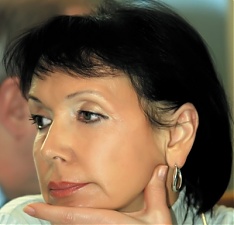Analytics, Baltic States – CIS, Direct Speech, Education and Science, EU – Baltic States, Legislation
International Internet Magazine. Baltic States news & analytics
Sunday, 28.12.2025, 19:07
The Russia-EU crisis: lessons from the recent past
 Print version
Print version |
|---|
The conflict in Ukraine and over
Ukraine has resulted in the suspension of the Russia-EU negotiations on a new
Strategic Partnership, sanctions wars ending bilateral cooperation, and
extremely hostile rhetoric that gains its own momentum. Although Russia’s
incorporation of Crimea is widely perceived in Brussels as a turning point in
the Russia-EU relations, the real roots of the conflict are much deeper being
related to the uneven end of bipolarity and uneven demise of the USSR. The
former did not result in any Peace conference on a new post-bipolar world order
and common rules of behaviour.
The Paris Charter and the Budapest
memorandum were adopted in November 1990 when the USSR still existed. With all
good ideas Gorbachev never intended to change the bipolar world order and
wanted to preserve two distinct social systems, one capitalist and one
socialist. He intended simply for a new détente to end Cold war tensions. The
end of the bipolarity was embodied in the collapse of the USSR. In the
post-bipolar time international actors started to apply the Helsinki principles
selectively according to their foreign policy interests and preferences. No
doubt, Russia and the West have very different views on the question “who first
violated the status quo in the post-bipolar world order” and it is impossible
to reduce these differing views to a common denominator.
The EU (and the West at large) sees
the recognition of Kosovo’s independence as an exception, while Russia sees it
as a precedent. For this reason Kremlin proceeds from the understanding that if
the West can interpret the international norms as it wants then Russia can do
the same. The demise of the USSR was also uneven because it was dissolved with
a stroke of a pen overnight without any serious negotiations between Russia and
NIS on the problems of the Soviet legacy – economic relations, Russian speaking
minorities, territorial borders and etc. Russia made its fair share of policy
mistakes in the post-Soviet area during the 1990s. Russia’s post-Soviet
euphoria was replaced with a sense of loss of empire and status of world super
power equal to the US. These post-imperial syndromes resulted in the Kremlin’s
policy of reassembling the CIS neighbours under the aegis “special relations”
with Russia.
However, Russia’s neighbours were
not just innocent victims. They did not understand that independence is a
costly thing. Half-heartedly they accepted the model offered by Moscow because
it was very difficult to resist cheap oil and gas Nadia AlexandrovaArbatova
Head Department on European Political Studies Primakov National Research
Institute of World Economy and International Relations Russian Academy of
Sciences Russia Email: [email protected] provided by Russia. It was the worst
possible model of relationship - dependence on Russia and the growing
dissatisfaction with this dependence. And in the end of the day this dichotomy
resulted in the emergence of GUAM coalition (Georgia, Ukraine, Azerbaijan and
Moldova) as a counterweight to Russia’s domination in the CIS. When the problem
of the Soviet Union’s nuclear legacy was solved, the EU and the West as a whole
became obsessed with the prospect of a new Russian empire. They saw the
separation of Russia from its CIS partners as a guarantee that the USSR would
never be brought back to life. And this principle was put at the centre of the
EU and NATO regional strategies that unavoidably bypassing Russia.
However proponents of this view
could not envision that these strategies would much sooner make Russia estrange
itself from the West, adopt the stance of selfassertiveness, pivot to Asia and
revival of “historic national values”. How to get out of this vicious circle?
It looks that the future of the Russia-EU relations as well as the genuine
post-bipolar order will completely depend on how they will come out of the
Ukrainian conflict. Peace in Ukraine is central to stability and security in
Wider Europe. From this point of view President Putin’s idea of deploying a
U.N. contingent along the line of contact in Donbas could become the first step
toward ending the crisis and hopefully toward building a new post-bipolar world
order. The differences between Russia, Ukraine and the EU on the format of a
peacekeeping operation should be at the centre of their negotiations. But if
this operation takes place in Ukraine it would be the first international
peacekeeping operation in the post-Soviet space.. The importance of this fact
should not be underestimated.








 «The Baltic Course» Is Sold and Stays in Business!
«The Baltic Course» Is Sold and Stays in Business!

